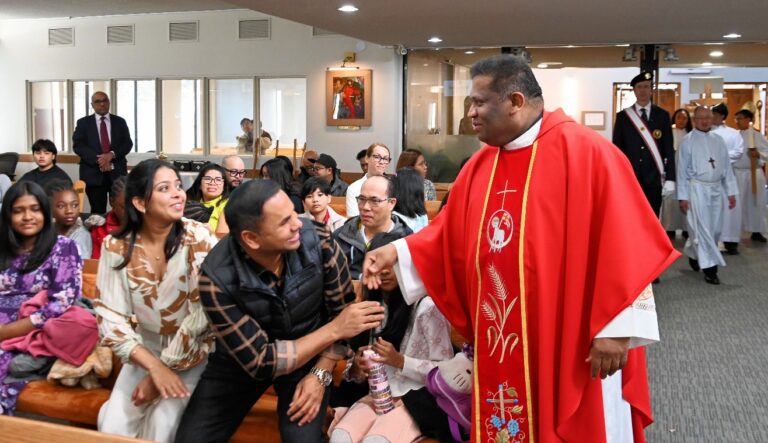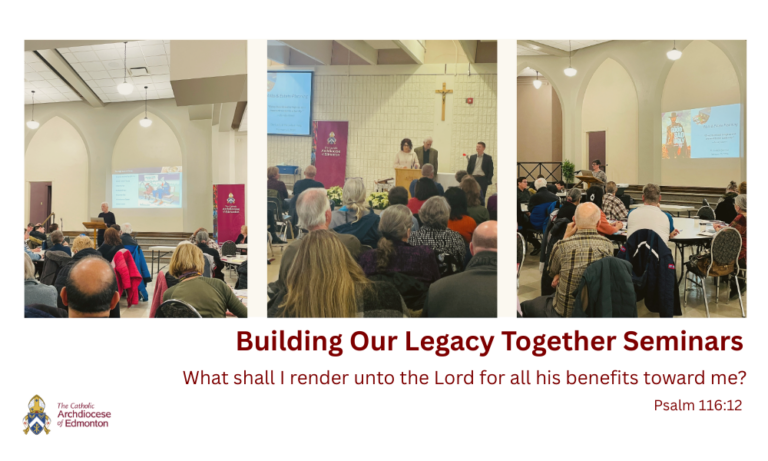Student enrolment continues to rise, and with it the hope that Catholic education in Alberta will survive and thrive.
“Choice in education matters to parents and they are choosing Catholic schools, so in the big scheme of things we can honestly say we are thriving,” said GrACE executive director Bonnie Annicchiarico in her opening address to delegates of the second annual Grateful Advocates for Catholic Education (GrACE) Summit.
A record 250 key players in Alberta’s publicly funded separate system gathered online April 19 to renew their hope for the future of Catholic education. The delegates included all Alberta bishops, trustees from across the province, administrators, teachers, students and parents.
Alberta is one of the few jurisdictions in Canada with a publicly funded Catholic school system. The others are Ontario, Saskatchewan, the Northwest Territories and Yukon.
Critics say the primary argument for amalgamating Alberta’s two publicly funded school systems into one is that it would save taxpayer dollars. However, there is research to debunk this cost-saving claim, said Annicchiarico, a retired assistant superintendent with Christ the Redeemer Catholic Schools in southern Alberta.
“We do have a history in Canada of losing Catholic education,” said Annicchiarico.
“In Quebec and Newfoundland they’ve seen the demise of Catholic education and there are a lot of lessons to learn from their experiences. It’s an early warning sign in Alberta, Ontario, Saskatchewan and the territories that those same things could happen here.”
GrACE formed in 2018 to advocate for Catholic education in Alberta. In its provincial 160-year history, Catholic education has grown to serve more than 183,000 students in more than 450 schools across the province.
Early in the conference program Tricia Murphy – the youth minister for Our Lady of Perpetual Help Parish in Sherwood Park – introduced two of these Catholic students to address the summit participants. Thomas Corrigan and Rachel Starko gave moving testimonies about their experiences of Catholic education.
Corrigan said he was singled out for his Catholic faith by his school basketball team. Instead of giving up on his faith, it made him realize his faith is integral to his very identity, helping him to persevere. Following this experience he found renewed strength through friends in his high school youth group.
His friend encouraged him, saying: “Thomas, your Catholic faith is your identity. If you lose that, you lose a huge portion of who you are. You lose the truth about yourself.”
“We are talking about hope today and what could be more important than to realize you are uniquely loved as a child of God,” said Corrigan.
As a youth minister Murphy is passionate about evangelization and the opportunity she has to help foster faith in youth.
“Catholic education is a missionary arm,” said Murphy. “This is my whole argument for Catholic education because it’s our way to evangelize. We don’t just have Catholic students in Catholic schools, we have all kinds of youth.”
Annicchiarico agrees that the Catholic system is an opportunity to reach young people. “The work of Catholic schools reinforces what students are hearing at home or it’s something they wouldn’t be hearing otherwise.”
Following the previous summit held a year and a half ago in Leduc, GrACE groups were beginning to mobilize until the pandemic struck, cancelling events last spring.
“We definitely lost momentum when COVID settled in,” said Annicchiarico. “I think we’ve recovered well and taken advantage of the opportunities we have.”
Annicchiarico said it’s important to remember what sets Catholic education apart. Enrolment numbers continue to climb because Catholic schools align with family values whether that family is practising a faith or not. Catholic schools have strong academics coupled with creating a safe and caring school environment.
In a summit breakout session Charlie Bouchard, superintendent of St. Thomas Aquinas Catholic School Division, said while secular culture is on the rise so is the satisfaction with Catholic education.
“That tells me there is hope. People want to see a lived faith in their family, their children, in our Catholic schools,” said Bouchard.
“When I first started hearing of GrACE I thought it had a primary focus to defend Catholic education should it ever be challenged in a referendum. But I’ve realized it’s not just that, what I’m seeing is to also to celebrate the good work and promote the good work we are doing.”



